See inside the Detroit house that Nicole Curtis is suing to save
 Christine Ferretti
Christine Ferretti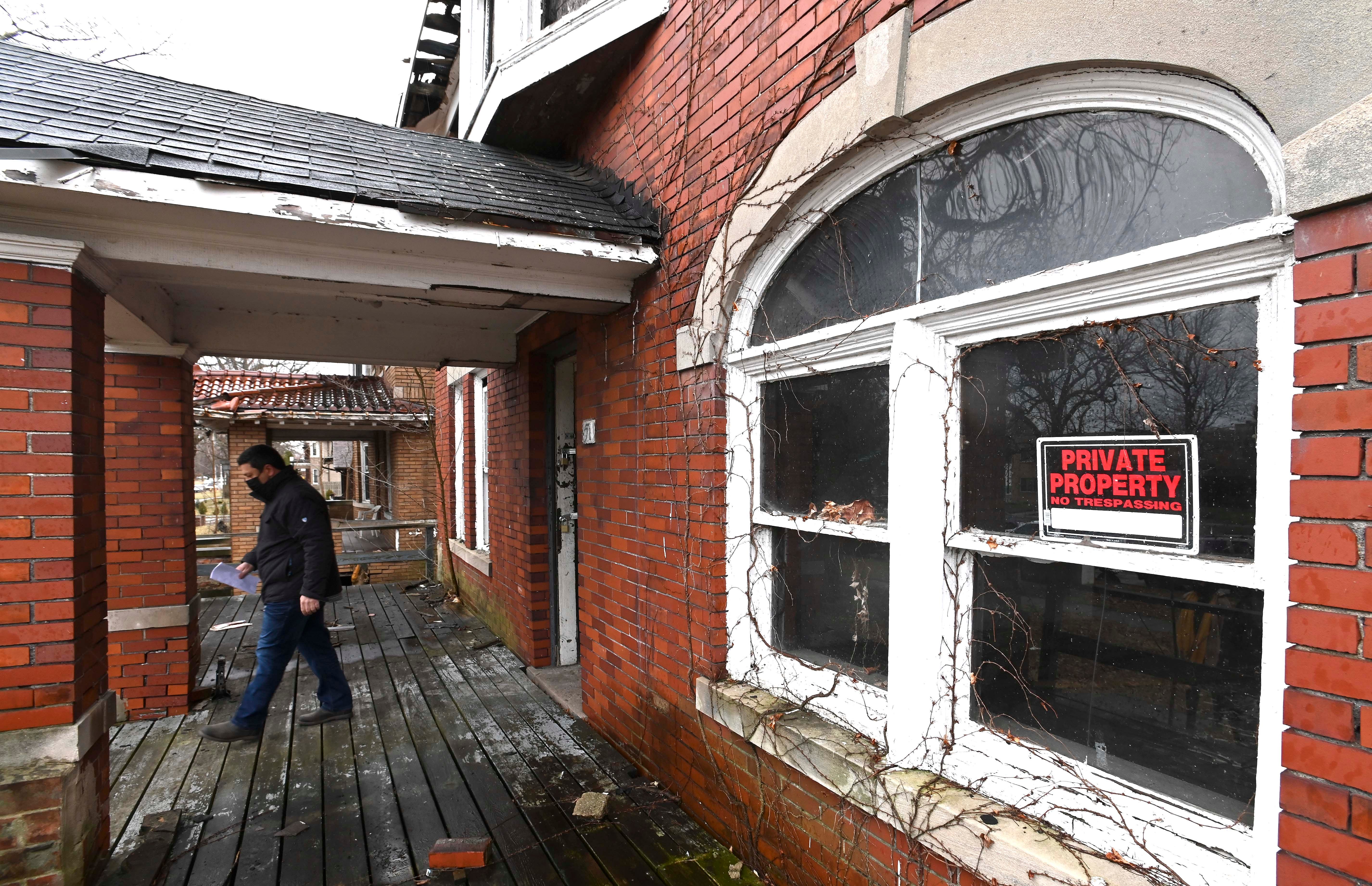
Detroit — Peeling paint, plywood boards and piles of soot and debris fill the interior of an Islandview home that's pitting a popular television star against Detroit's land bank.
Nicole Curtis of HGTV's "Rehab Addict Rescue" sued the Detroit Land Bank Authority this month and is arguing the authority took advantage of her when it took the deed to a 1908 foursquare. Curtis' Detroit Renovations LLC paid a private owner $17,000 for the house on East Grand Boulevard in 2017. The next year, Curtis learned that the land bank actually held the property title.
Curtis said she's invested $60,000 into insuring the house, paying off back taxes and keeping it maintained and secure, and the land bank stands to "directly benefit from years of labor, expertise, and money" that Curtis put in.
The Lake Orion native claims she's entitled to ownership of the dilapidated property, based on her substantial investments there and the belief that she'd owned it. Or, the land bank should compensate her.
Curtis told The Detroit News she intended to invest $500,000 to restore it. Curtis, who has acquired and restored about six houses in Detroit, said she invests her own money into the projects.
“For myself, my own projects, we keep all of the houses we restore because there’s no value in them when we finish. I don’t get my money back,” Curtis said. “They are like my little museums.”
Curtis reiterated Thursday that her company has been the only party to cover costs associated with taxes, insurance, maintenance and structural repairs since she bought the home in 2017 from a private seller.
"The house is a shell as indicated previously," she wrote in a text message. "DLBA has had legal title since August and done nothing to the property to secure it after break-ins. Keeping a property such as that safeguarded is a nonstop task as every day someone breaks in and trespasses."
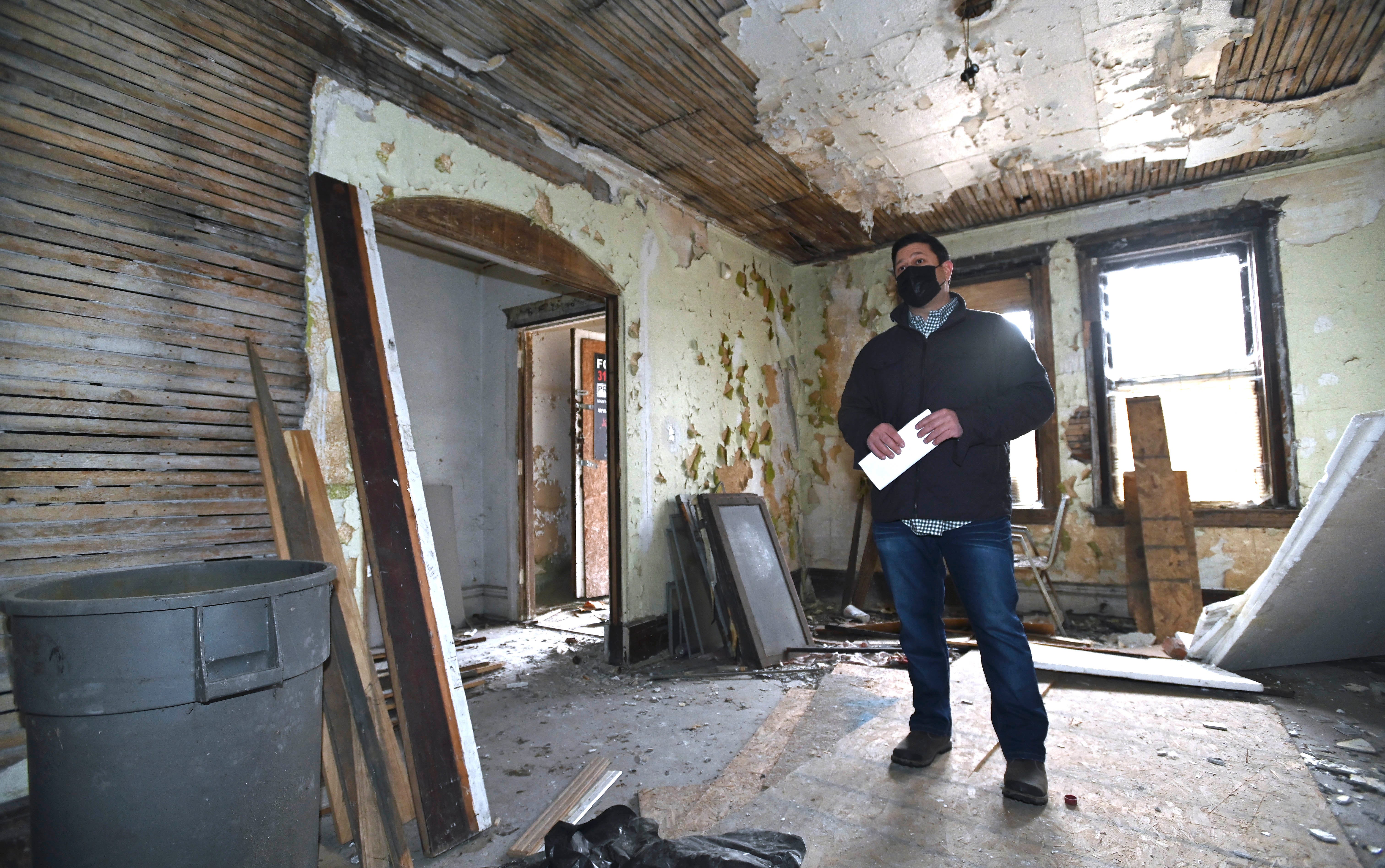
The News, during a Thursday tour of the house, observed sagging and missing sections of the ceiling on both levels, holes in the floors and exposed lath on the walls where the plaster has been pulled off or has fallen away.
Alyssa Strickland, a spokeswoman for the land bank, said this week the land bank does not comment on pending litigation. Previously, Strickland noted the land bank already won two separate legal actions related to the property.
The land bank filed suit in Wayne County Circuit Court in July to resolve the title issue. The court ruled in the land bank's favor a month later, extinguishing any other claims to the property.
In January, the DLBA filed a motion for supplemental relief, asking the court to set a date for Curtis’ company to vacate the property. That motion was granted and a Feb. 12 date set for the property to be empty.
The house is already generating intense interest for the land bank. It has had more than 40 showings and three parties — including one Detroit contractor — are preparing proposals, said James Bufalino, a real estate broker for Detroit-based Premier Property Services, which is facilitating showings and submitting offers that come to the land bank.
Bufalino said the interest has been broad, ranging from families with young children to individuals relocating from elsewhere in Metro Detroit and out-of-state investors and homeowners.
"Obviously, Islandview has a wonderful draw with its walkability and having Belle Isle right here," he said.
The house is expected to be on the market for up to 45 days. The response so far, Bufalino said, is typical for the sought-after brick homes. The poor conditions aren't a deterrent. In December, a comparable house nearby sold for $274,000, he noted.
"There's not a line item that doesn't need to be redone; roof, windows, plumbing, electrical, mechanical," Bufalino said of the house. "Whether this is in livable condition but totally outdated and someone is doing a full gut or it's in this condition, to an investor or developer it doesn't mean anything. You're still taking it all down. If you're doing a whole down to the studs renovation, it doesn't matter if it looks like this or looks livable."
Gordon Hawkins, broker and owner of Hawkins Realty Group, has sold real estate in Islandview and nearby historic village communities in Detroit for a dozen years.
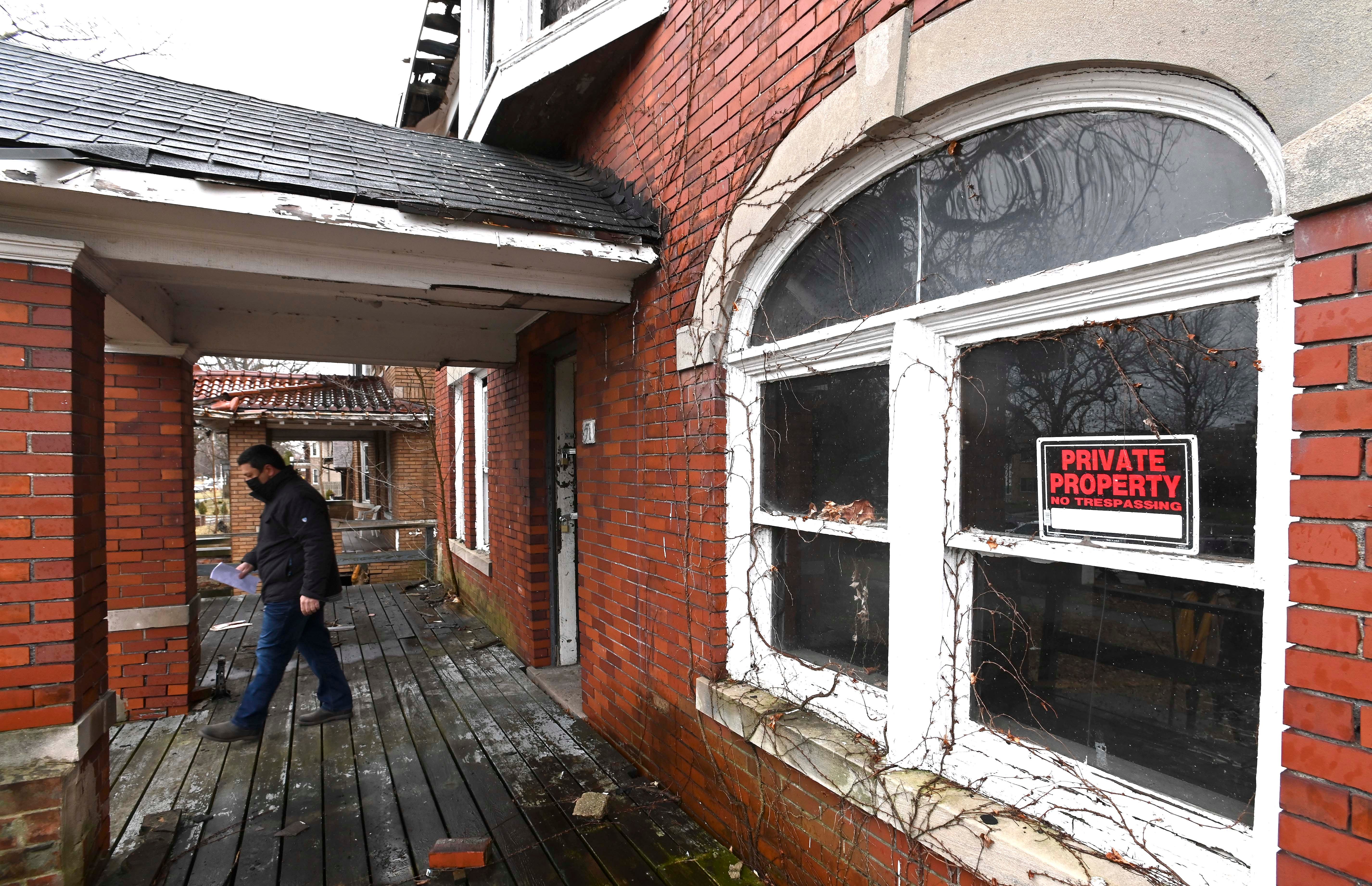
Currently, renovated 1,500- to 1,800-square-foot, single-family homes in Islandview are selling for $255,000 to $279,000. The same size and type, without repairs, are selling between $75,000 and $85,000, he said.
Hawkins said houses just six or seven blocks away in Detroit's Indian Village and West Village neighborhoods, other areas with significant architecture, have gone for half a million. His firm sold houses on East Grand a couple of years ago for about $340,000, and in West Village homes have sold at $400,000.
Curtis, in an interview, has described the rough conditions inside, noting there are no doors or windows and the flooring has holes that provide a view to the basement.
The restoration is "a very scary project," but it's something she's familiar with, she said.
It's been seven months since the land bank "publicly laid claim" to the house, she said Thursday, and "refused our requests for resolve."
After Detroit Renovations purchased the home from private owner Joyce Cauley and later was informed of the title issue, Curtis and the land bank worked toward a mutual agreement to allow Curtis to rehab the house. Those talks were unsuccessful. Ultimately, an August court judgment was issued in the land bank's favor.
Attempts to reach Cauley were unsuccessful.
Despite continued efforts by Curtis' legal team to reach an agreement, the house went up on the market on Feb. 26 for $40,000.
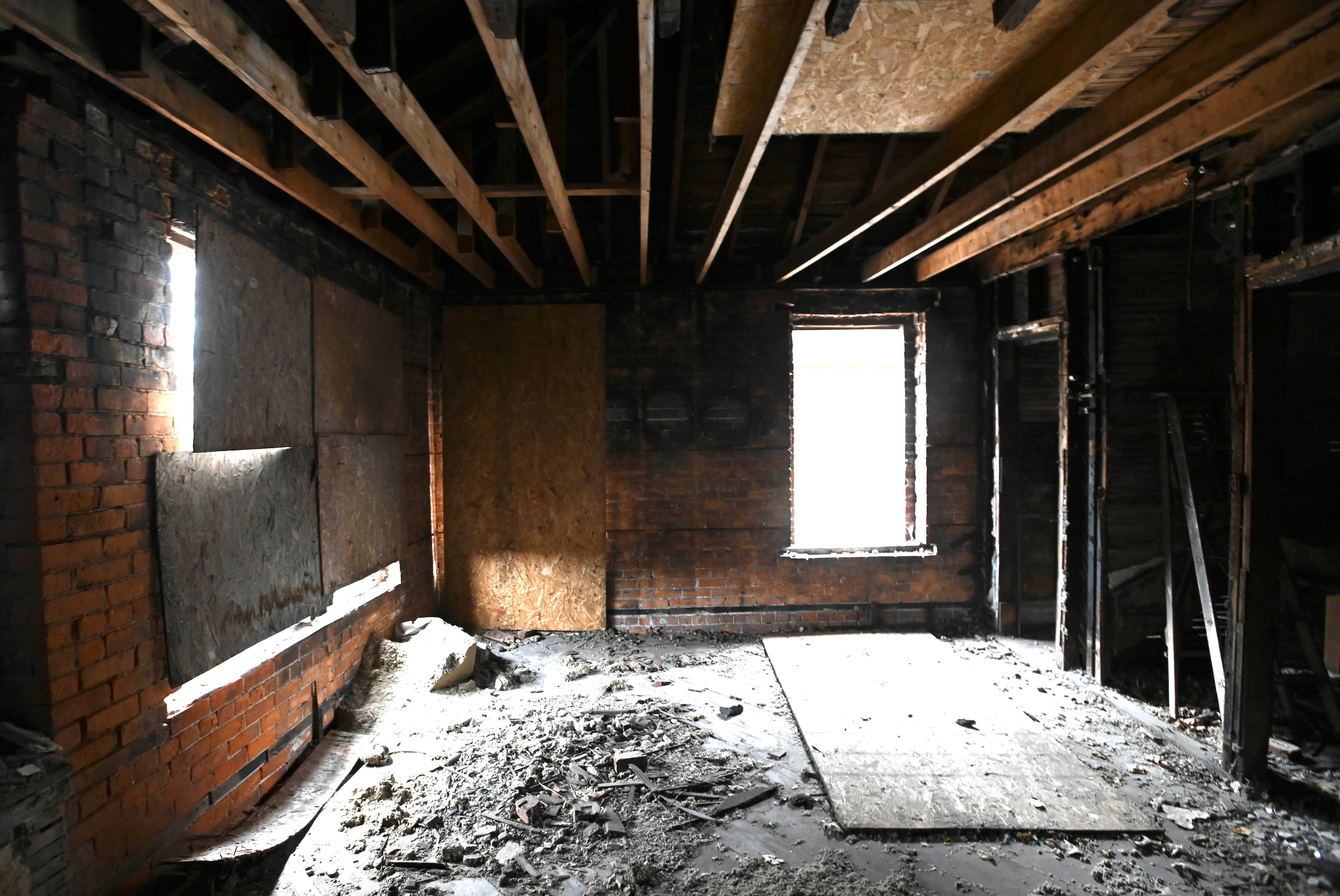
Contested tax history
It's unclear when the house was last occupied. The land bank originally filed a nuisance lawsuit in 2015 against the prior property owners, Jerome and Joyce Cauley, to compel them to renovate the blighted house.
The Cauleys did not occupy the property at that time, the land bank noted, and failed to meet their commitments. In January 2017, the property title was transferred back to the land bank.
Strickland told The News on Thursday that the land bank doesn't have a firm vacancy timeline, since the house was in private ownership before it came into the authority's inventory in 2017.
"However, our sales team did find a 2007 Google street view which shows the house vacant and blighted and a 2004 Wayne County nuisance abatement lawsuit, which indicates it was likely vacant at that time," she said.
Deputy Chief Financial Officer and Assessor Alvin Horhn said based on city records, the last time tax payments were made on the property was in 2014.
That year, a payment of $449.51 for the summer tax bill was made on Dec. 30, 2014. The winter tax bill of $39.60 was not paid, he said. The entity that made the payment was not identified in city records.
In 2017, Horhn said, the delinquent tax file was sent to the Wayne County Treasurer's Office for collection.
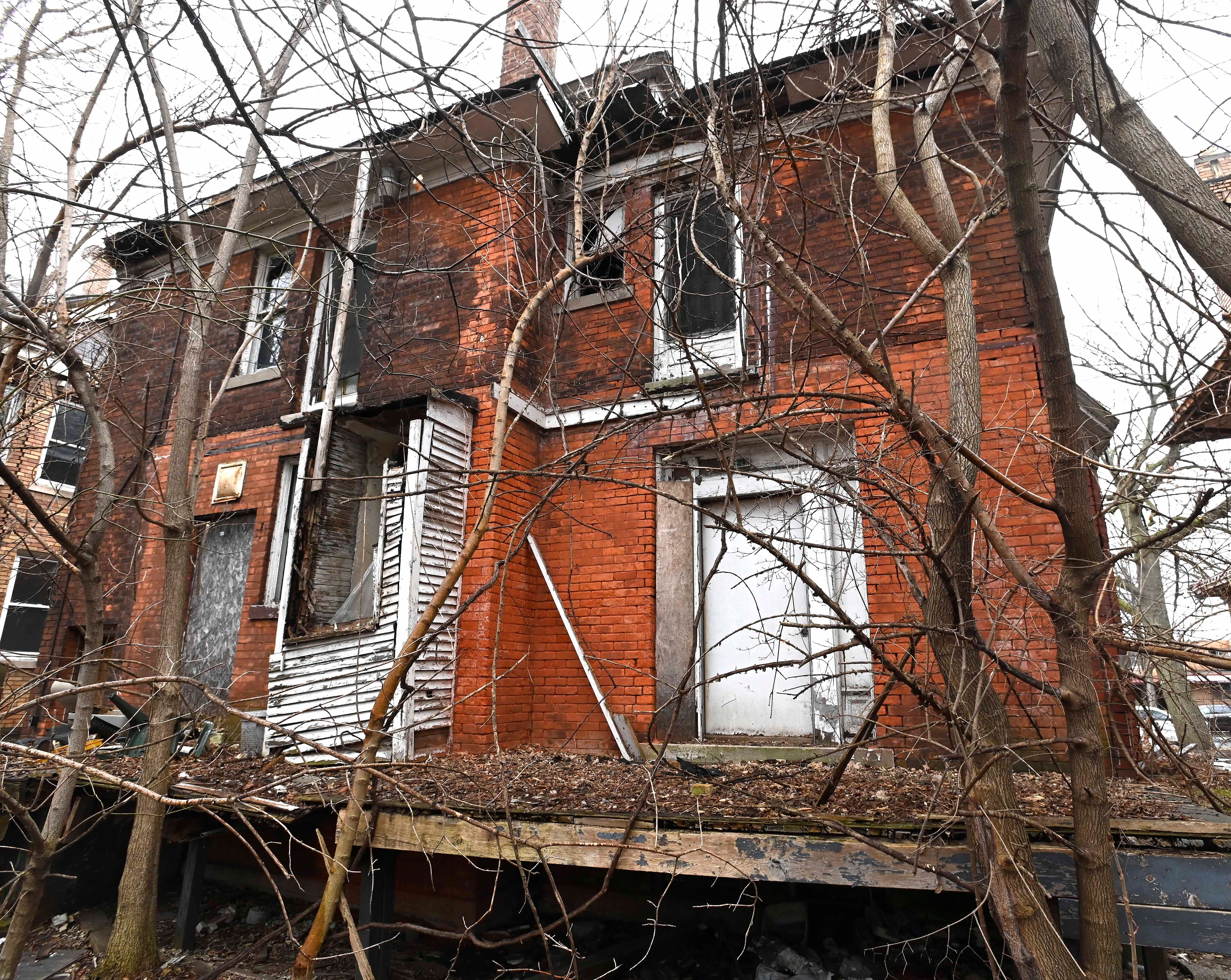
A total of $375.87 in property taxes went unpaid in 2015; $368.51 in 2016 was never paid; and $636.34 in taxes were outstanding for 2017.
Detroit Renovations made a partial payment of $570.63 on a tax bill of $725.51 on Sept. 18, 2018, according to Horhn and tax documents shared with The News.
"It appears she made a good faith transaction," he said. "From what I can see, she didn't do anything wrong. She made an agreement with someone who represented they owned the property, and they didn't."
After the court order transferred the property back to the land bank, the house became exempt from taxes under state statute. The Grand Boulevard property has been tax-exempt since Nov. 6, 2018, Horhn said.
Curtis provided The News with copies of summer and winter tax bills from 2018 that she received from the city. Curtis said she paid back taxes to Wayne County for 2015, 2016 and 2017 when she closed on the property.
In a statement to The News, Mario Morrow, a spokesman for Wayne County Treasurer Eric Sabree, noted delinquent taxes for the house were adjusted in 2018 for prior years and the city of Detroit would have made that adjustment. Sabree's office contends payments made by Curtis would have gone to the city.
On Friday, Morrow declined to address further questions on the tax matter, citing the "pending legal proceeding."
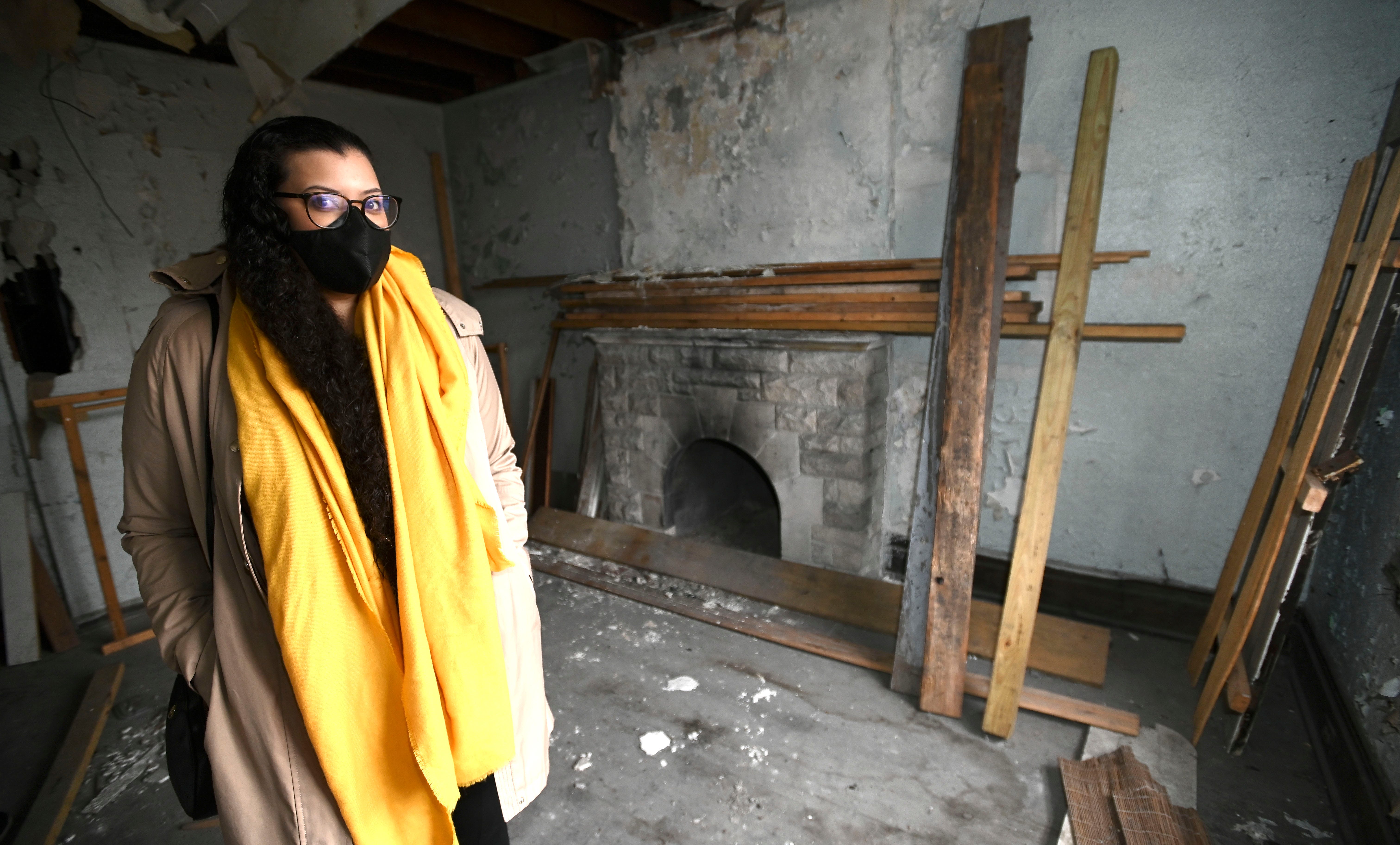
An equitable mortgage
Curtis' lawsuit contends the land bank knew or should have known that she was spending money to safeguard the house yet failed to take action to enforce its legal interest in the home for more than two years.
Curtis relied on this failure, the lawsuit alleges, to continue to believe that her title was lawful. Detroit Renovations, the suit argues, had an equitable mortgage on the property because Curtis purchased it via a quit claim deed and from the time she acquired it on May 30, 2017, until as late as May 15, 2020, she believed she had a valid title.
Land Bank Executive Director Saskia Thompson has said that the authority disagrees with Curtis' claims that the property was taken from her. Curtis, she said, "never owned the house" and any legal cause of action Curtis might have "it's not against us."
"We're not the ones that took money from her for that property," Thompson has said. "Someone else did when they no longer owned it."
In January, the land bank filed a motion, asking the court to set a date for Curtis' company to vacate the property. It was granted later that month and a Feb. 12, 2021, deadline was set. Land bank officials then prepared the house for listing, which included securing it, Strickland said.
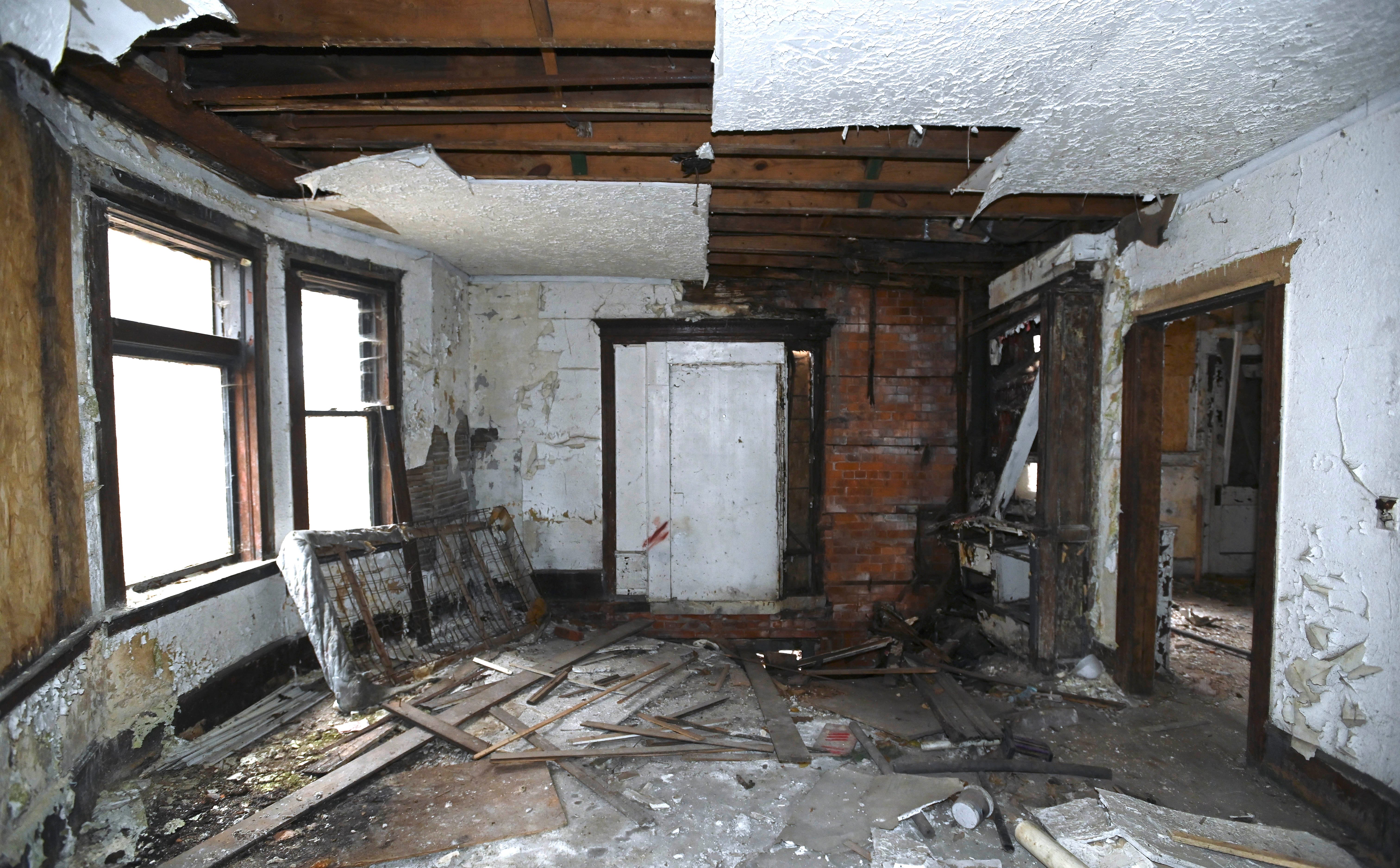
That process, the land bank has said, confirmed Curtis made no visible improvements to the condition of the house, but some interior walls had been removed.
Curtis told The News this month that the land bank has argued "you haven't done anything" to the house.
"Would you write a check to go into that house right now knowing that I've got to deal with you guys (the land bank) and you won't give me clear title? No," she said. "This is real money. I'm a single mom. I have two children. All the money in these houses is mine privately."
In her March 12 lawsuit, Curtis contends her investment has "significantly increased" the value of the property and the land bank wishes to "reap the rewards."
Curtis has not made a formal proposal for the house, Strickland confirmed on Thursday.
"We're open to all offers," Strickland said. "We will review her offer (if it's submitted) as we would anyone else's offer and it will go from there."
Bufalino said a basic restoration could cost $60 to $80 per square foot. A property like the East Grand house, he said, could run upward of $90 to $150 per square foot to bring it back to its original integrity.
"Ninety percent of our buyers are people who want to preserve what's here," he said.
cferretti@detroitnews.com